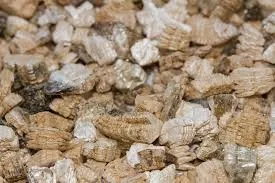Dec . 31, 2024 22:35 Back to list
Top-notch Insulation Materials for Superior Pipe Thermal Efficiency and Energy Savings
High-Quality Pipe Thermal Insulation Materials Importance, Types, and Benefits
Thermal insulation is a crucial aspect of modern construction and industrial processes, particularly when it comes to piping systems. Proper insulation not only enhances energy efficiency but also protects piping systems from the detrimental effects of temperature fluctuations. High-quality pipe thermal insulation materials are essential for achieving optimal performance and longevity of piping systems.
Importance of Pipe Thermal Insulation
Pipes, whether they carry hot or cold fluids, are susceptible to heat transfer. In hot pipes, thermal insulation helps maintain temperature by reducing heat loss to the surrounding environment. Conversely, in cold pipes, insulation minimizes heat gain, preventing condensation and freezing. The benefits extend beyond energy efficiency; effective thermal insulation can also lead to significant cost savings by reducing energy consumption.
Moreover, quality insulation protects against environmental factors such as moisture and corrosive elements. This protection is crucial in industrial settings where pipes operate under extreme conditions. By investing in high-quality thermal insulation, businesses can ensure their systems remain efficient and reliable while minimizing maintenance costs.
Types of Pipe Thermal Insulation Materials
1. Fiberglass Insulation This is one of the most commonly used materials for pipe insulation. Fiberglass is lightweight, non-combustible, and offers excellent thermal resistance. Its composition allows it to withstand high temperatures, making it suitable for both hot and cold pipes. Furthermore, fiberglass insulation is often available in pre-formed pipe sections, allowing for easy installation and effective coverage.
2. Foam Rubber Insulation Foam rubber is another popular choice for pipe insulation. It is flexible, making it easy to install around curved sections and fittings. This type of insulation is ideal for chilling water pipes and is known for its ability to minimize condensation. Additionally, foam rubber is resistant to moisture, providing further protection against mold growth and pipe corrosion.
3. Mineral Wool Insulation Made from natural rock or glass fibers, mineral wool insulation is fire-resistant and can withstand high temperatures. It provides excellent thermal insulation while also being acoustically effective. This type of insulation is particularly beneficial in industrial settings where noise reduction is a priority.
4. Polyurethane Foam Insulation Polyurethane foam offers superior thermal insulation compared to many other materials. It is a rigid foam that provides an exceptional R-value per inch of thickness, making it highly effective for both hot and cold pipes. Additionally, polyurethane foam is resistant to moisture, which further protects against issues related to condensation.
high quality pipe thermal insulation materials

5. Reflective Insulation Reflective insulation uses a reflective surface to redirect radiant heat away from piping systems. This type of insulation is especially effective in hot climates where heat gain is a concern. Reflective insulation is lightweight and can be easily integrated into various applications, making it a versatile option for thermal management.
Benefits of Using High-Quality Insulation Materials
Investing in high-quality pipe thermal insulation materials comes with numerous benefits
- Energy Efficiency High-quality insulation helps maintain desired temperatures, leading to reduced energy consumption and lower utility bills. This efficiency is particularly vital for businesses where operational costs heavily depend on energy use.
- Extended Equipment Life By protecting pipes from temperature extremes and environmental factors, quality insulation can prolong the life of the piping system. This reduction in wear and tear leads to fewer repairs and replacements over time.
- Safety Proper insulation minimizes the risk of burns or frostbite from exposed hot or cold pipes, enhancing safety in both residential and industrial settings.
- Environmental Impact By reducing energy consumption, high-quality insulation contributes to lower greenhouse gas emissions. This eco-friendly aspect is increasingly significant as industries strive to adopt sustainable practices.
- Regulatory Compliance Many industries are subject to strict regulations regarding energy use and environmental impact. Using high-quality thermal insulation helps businesses comply with these regulations, avoiding potential penalties and enhancing their reputation.
In summary, high-quality pipe thermal insulation materials are indispensable for any system that involves the transfer of fluids. They provide energy efficiency, safety, and compliance while protecting valuable infrastructure. As industries continue to prioritize sustainability and efficiency, the importance of investing in quality thermal insulation will only grow.
-
Eco-Friendly Granule Covering Agent | Dust & Caking Control
NewsAug.06,2025
-
Fe-C Composite Pellets for BOF: High-Efficiency & Cost-Saving
NewsAug.05,2025
-
Premium Tundish Covering Agents Exporters | High Purity
NewsAug.04,2025
-
Fe-C Composite Pellets for BOF | Efficient & Economical
NewsAug.03,2025
-
Top Tundish Covering Agent Exporters | Premium Quality Solutions
NewsAug.02,2025
-
First Bauxite Exporters | AI-Optimized Supply
NewsAug.01,2025
